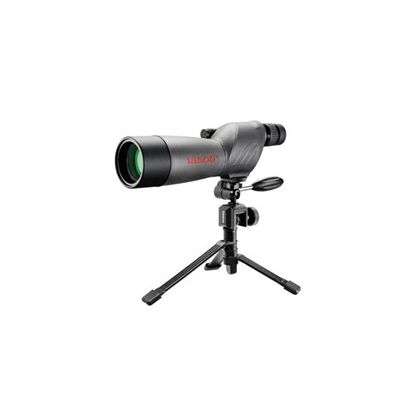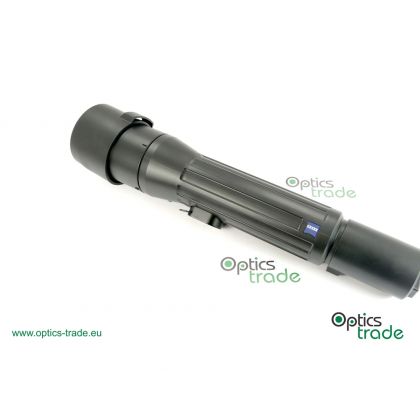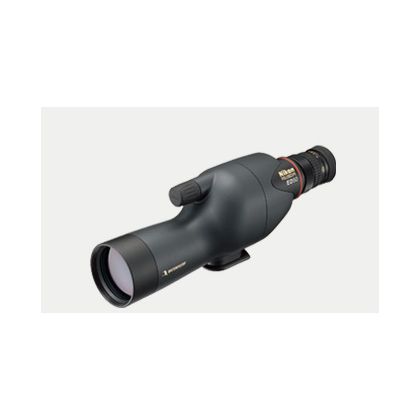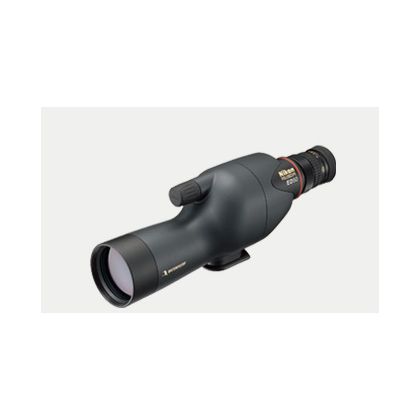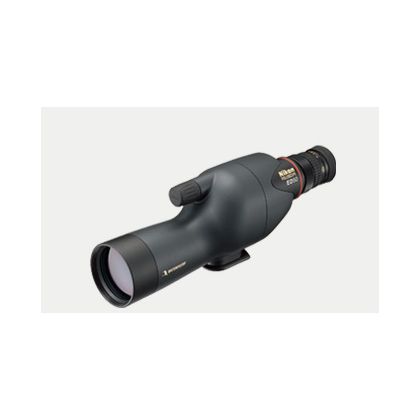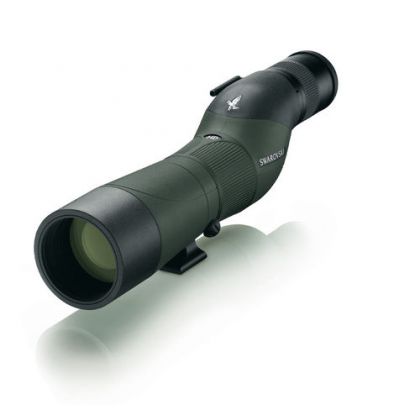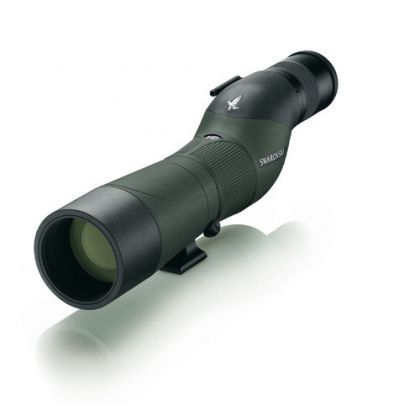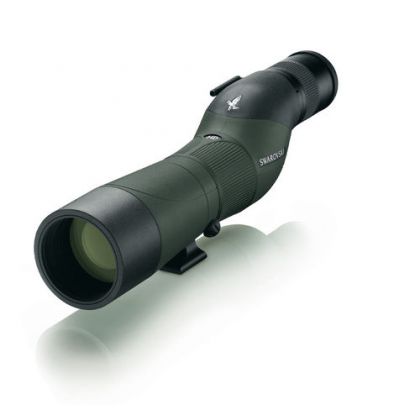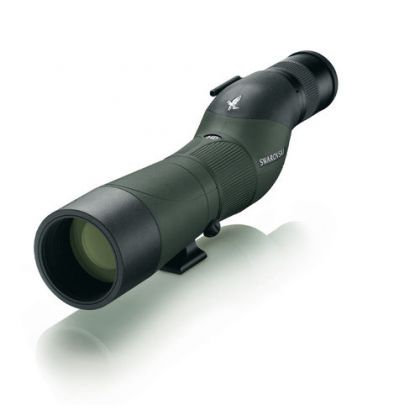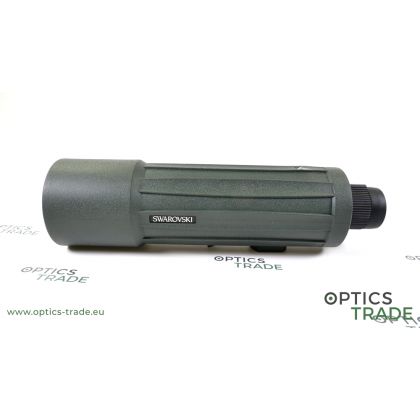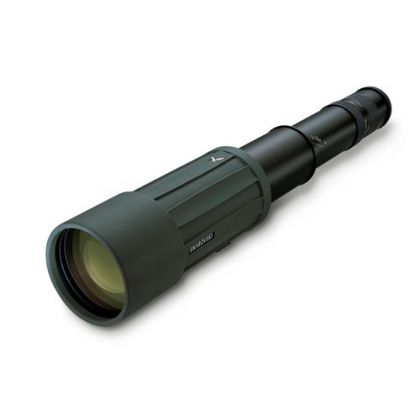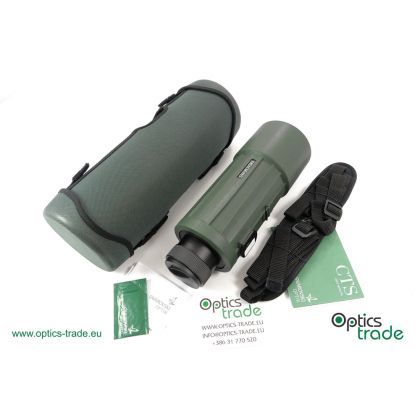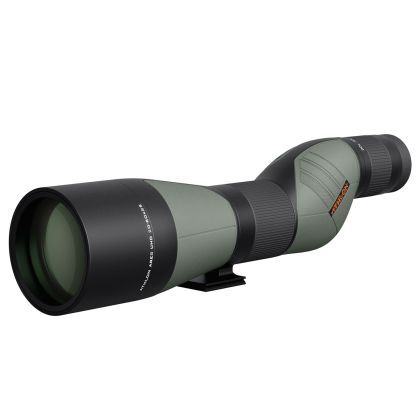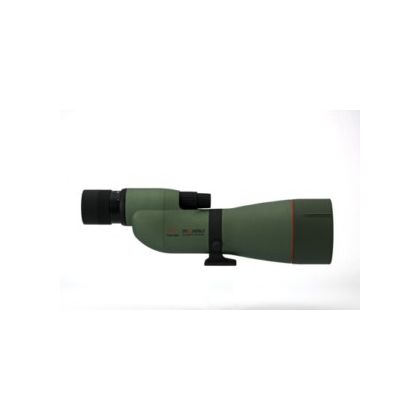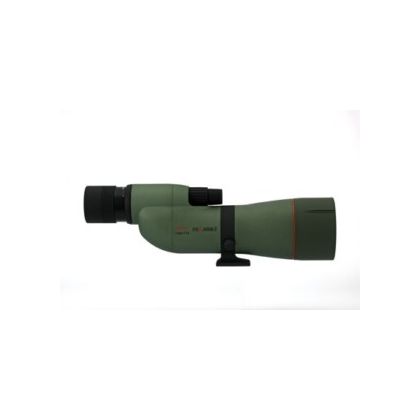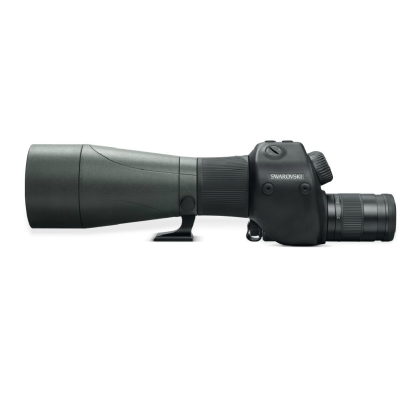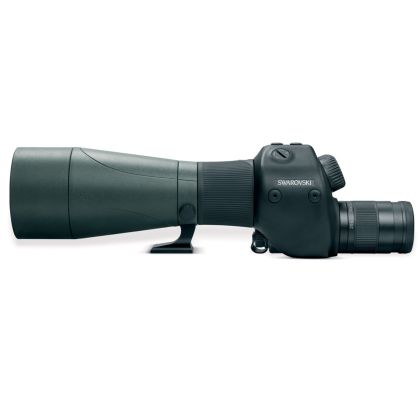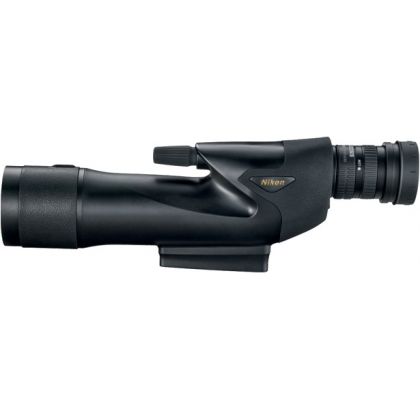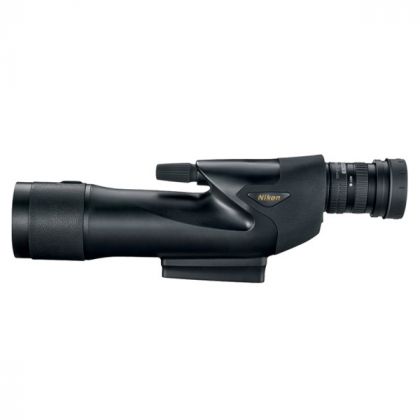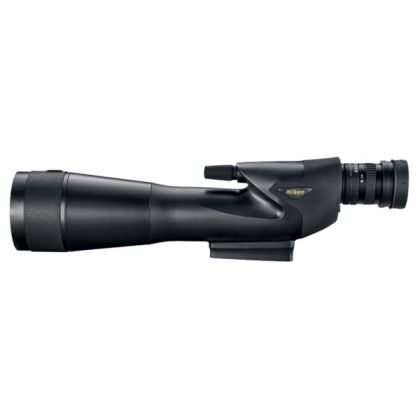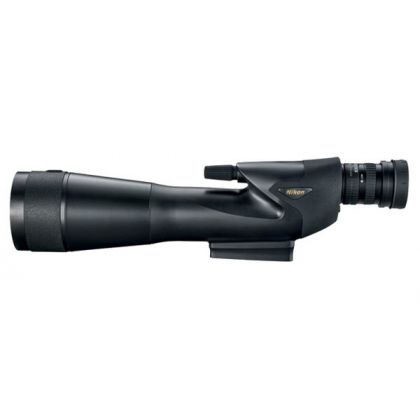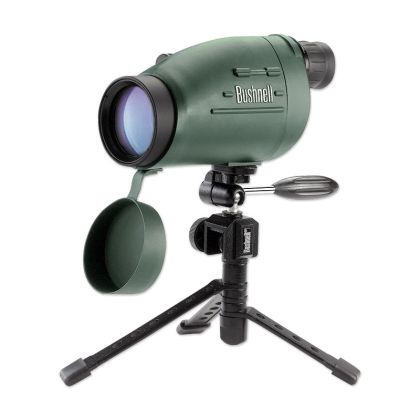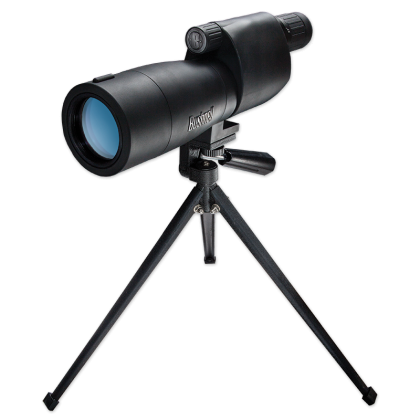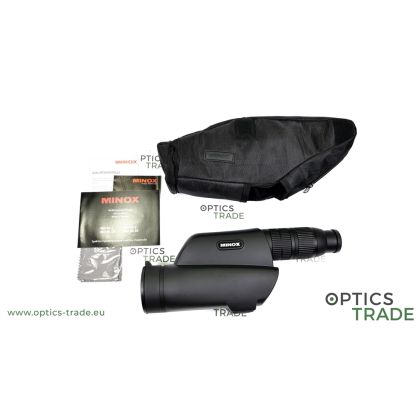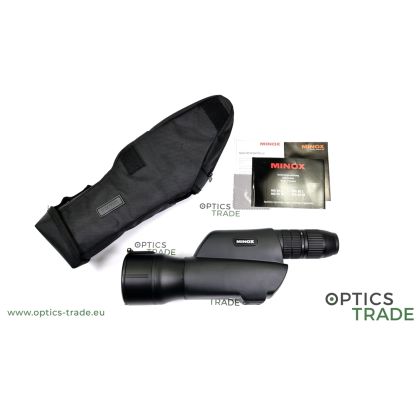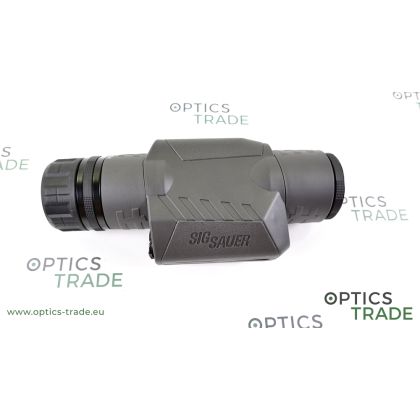Mounts
Straight Spotting Scopes
General properties of straight spotting scope
Straight scopes have a straight-through design that, ergonomically easier to use than angled spotting scopes. With this design you can easily spot target objects, very convenient for youth hunters. Due to quick aim you can easily follow fast moving target object or subject, especially convenient for law enforcement applications in conjunction with guns.
They are highly convenient when using them when hiking on the mountains and scanning the surroundings down into the valley or any other observations below your own level. Because they don't have rotatable eyepieces as the angled spotting scopes, they require a lot of adjustments. It's important to change the aim according to the height of individuals. Straight scopes usually requires higher position. Legs of a tripod must be quite extended, which gives less steady images.
Extended legs of a tripod also provide less protection when facing the extreme terrain, they can easily fall when facing the wind, so it’s very important to use robust and tough tripods or weight it down with to keep it firmly to the ground. This would be especially recommended for individuals with above average height that need a higher adjustment. They are less comfortable for bird watching, astronomy and other prolonged long-distance observations with spotting scopes.
Main features
- (+) great ergonomic design
- (+) convenient for youth hunters
- (+) good for scanning the surroundings down
- (-) less steady images
- (-) can easily fall in the wind
- (-) not for bird watching and astronomy
Straight spotting Scope for Hunting
Comparing to angled spotting scopes, straight ones are preferred choice among hunters who hunt in the flatlands and on the field. Since it is easier to find the target in the field of view with a straight spotting scope, hunters often use it in the car or in the hunting observatory. They install it to the window of a car or lean it on the edge of a hunting observatory.
While straight scopes are great for hunting in the flatland, they are not so useful in the mountains and the highlands. Since the hunter has to lean the head and overstretch the neck in the direction of the target, it is very unsuitable for such use. For observations under steep angles either up or down, angled spotting scopes are the preferred choice. Thus hunters in the mountains use them more often than straight scopes.
Straight scopes are not normally used with a tripod.

Straight spotting Scope for Birdwatching
Birdwatching is often a group activity that involves larger groups of people participating at the same time. With the help of a straight spotting scope, it is very easy to find a specific bird in the flock of birds. Straight scopes are a perfect choice if you are a birder that uses the scope most of the time alone.
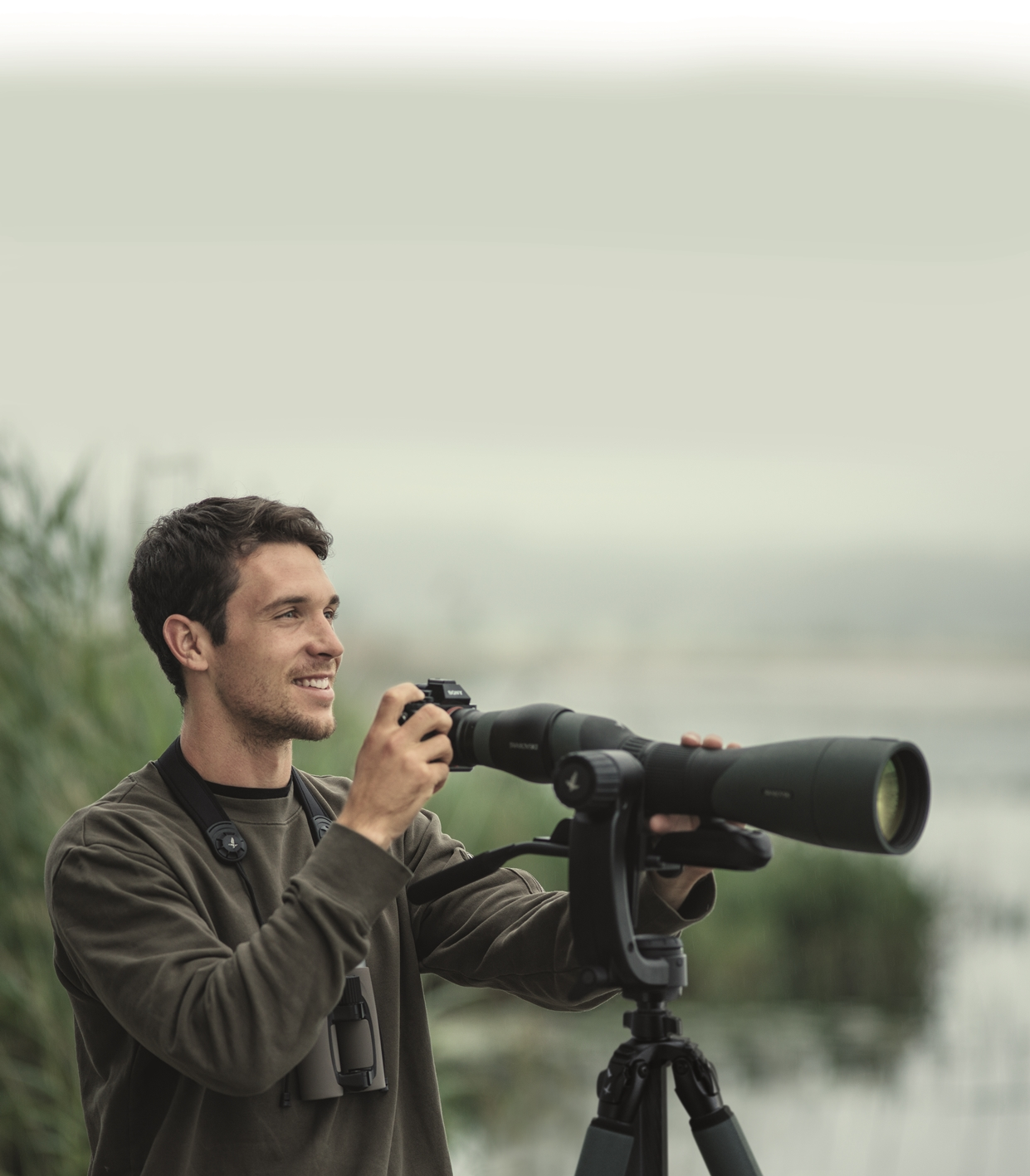
Since birdwatching is normally done with a tripod, it is easy for the birdwatcher to adjust the tripod to its height. Birdwatching in a group, on the other hand is completely meaningless with a straight spotting scope. Since the activity is performed in a group of people, it is much harder (almost impossible) to adjust the tripod to the right height. If it is adjusted to the smallest person in the group, others have to lean very low to see through the scope. If it is adjusted to the highest person in the group, others can not reach the scope to see it through.
Spotting scopes for Digiscoping
A lot of people love to take pictures of landscapes or birds they are observing. In order to do that, their phones or cameras need to connect with their spotting scopes. Comparing to angled spotting scopes, straight scopes are much easier to use when digiscoping. For the stability of the whole digiscoping setup, special supporting rails are used.
- Supporting rails installed to straight spotting scope are bigger and more bulky, in order to support the weight of the camera and the scope itself.
- But regardless of the size and the weight of the whole railing, it gives the photographer the easiness of use.
- Digiscoping is used in many different activities. Along birdwatching and landscape photography, it is very common in sports photography (for example sailing regattas). Normal cameras do not have such strong magnification and focusing, therefore most of the photographers use spotting scopes. Since straight scopes are better at locating the target or the wanted object, they are preferred choice among professional photographers.
Focusing mechanism on Spotting scope
Straight spotting scope have two different ways of focusing. They either have a rotating focusing knob or a ring that goes around the body. The majority of the straight spotting scopes have one rotating knob for focusing. The knob is located on the top of the body. Some more expensive models have a two-piece focusing knob. The first part is for fast and rough settings, the second part is for finer adjustments and therefore focuses on lower speed. Some spotting scopes have unique focusing ring that goes around the entire body. Swarovski is a prime example of this approach. These focusing rings have a bigger diameter. A more prominent knob enables finer adjustments at a constant speed.
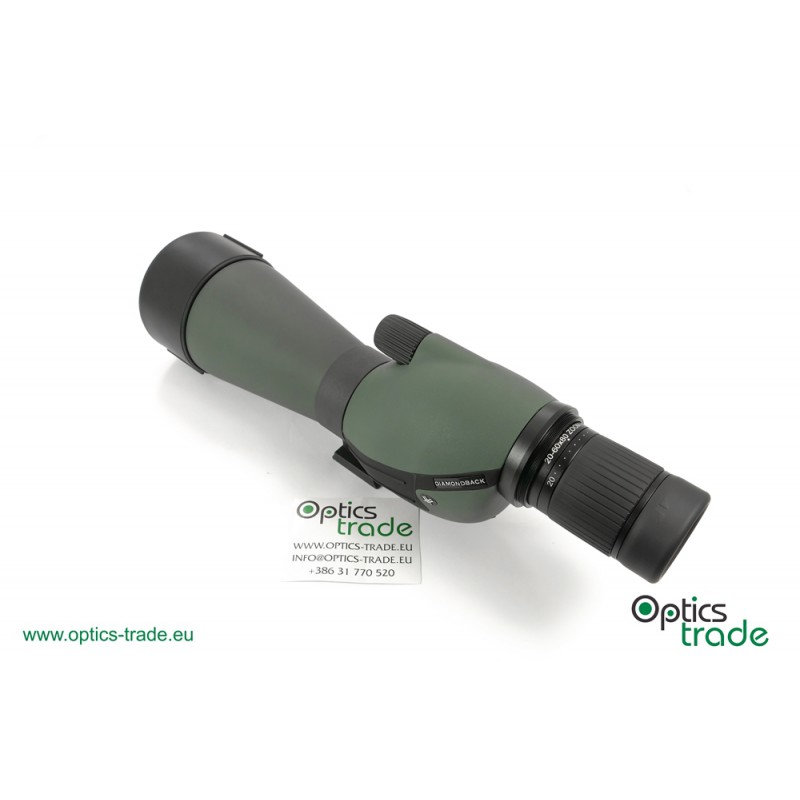
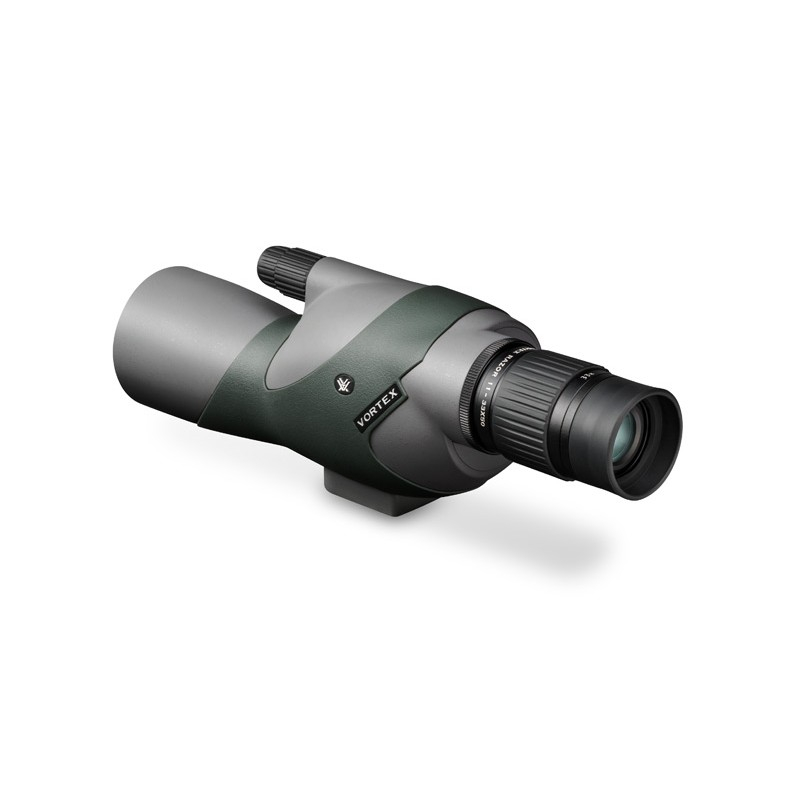
Spotting scope with one rotating knob and Spotting scope with two-piece focusing knob.
Waterproofness of Straight Spotting Scope
Most of the spotting scopes are waterproof and filled with either nitrogen or argon.
The only weakness is the bayonet mount for interchangeable eyepiece, which is a part of the most premium straight spotting-scopes. More affordable spotting scopes have a fixed eyepiece, which ensures even better protection against water intrusion. Even if the scope comes with an eyepiece as a separate part, it remains waterproofed when assembled. The connection between the eyepiece and the body is well sealed.
- Both eyepiece and the spotting scope body are waterproof as standalone units.
- If the water comes in the middle space, there is no permanent damage. The water between eyepiece and the spotting scope body can be dried, with no permanent damage left.
- The problem occurs when the eyepiece is removed and exposed to rain. This way, the water could come in the space between the body and the eyepiece.
- The water intrusion can cause unclear images.
The recommendation is to fix the eyepiece somewhere in a dry space and then leave it until the end of use.
Red Dot Sights on Straight spotting scope
Many straight scopes feature one or more small Picatinny rails on the housing. The Picatinny rail has is commonly used as a platform for mounting a red dot sight on the spotting scope. A lot of hunters and long-range shooters use this setup for rapid target acquisition with their angled spotting scopes, not so much with straight scopes. Since they are better at locating the target, their use with red dot sight is not as common as with angled spotting scopes.
A short presentation is available here.
Video presentation of Spotting scopes
Slideshare Presentation of Spotting scopes
Filters
Sort
Filters
Sort
